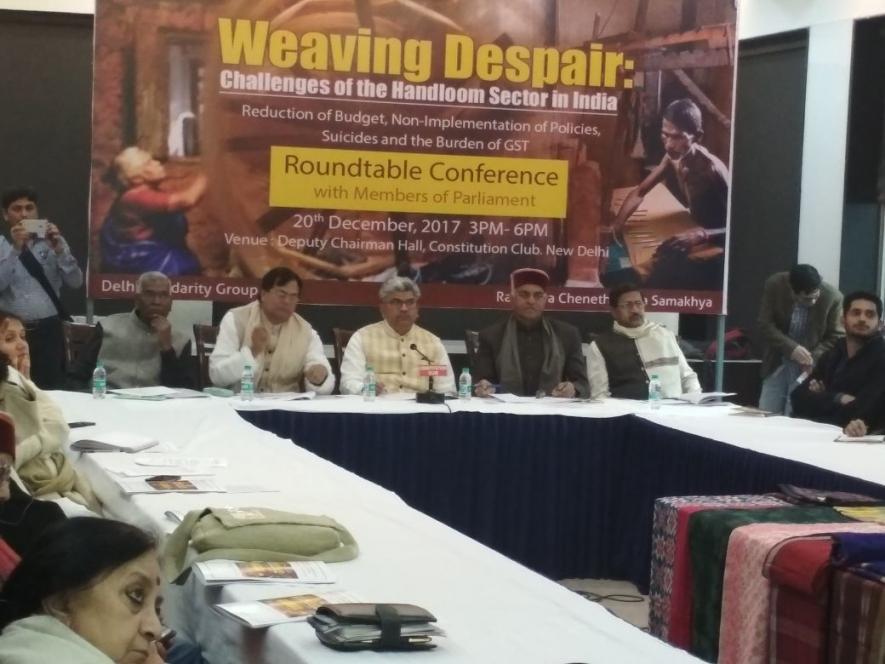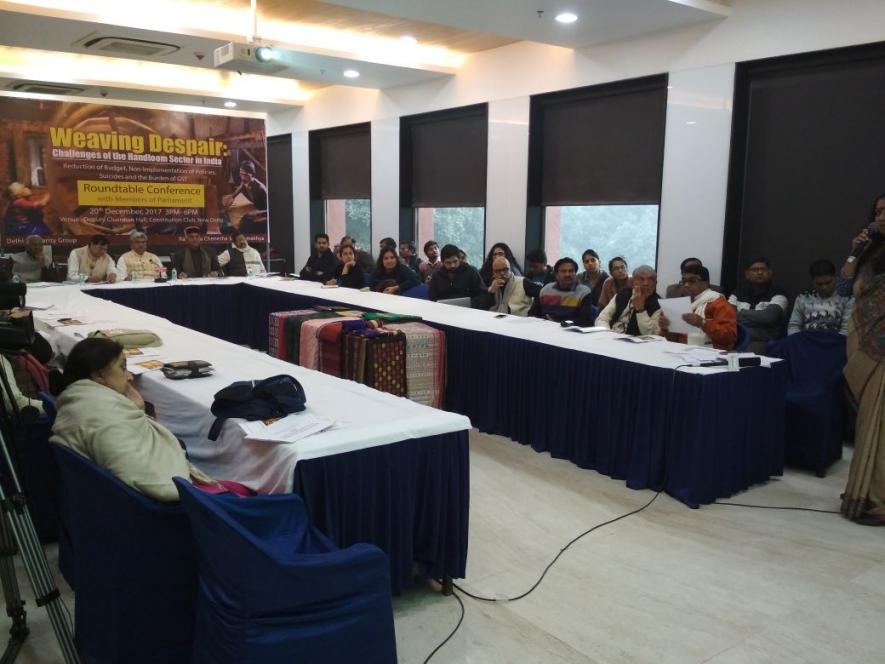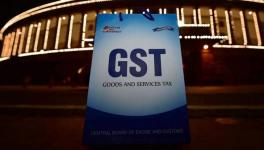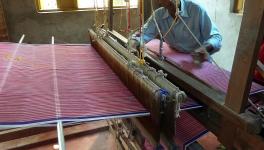Weaving Despairs: The Challenges of the Handloom Sector in India

The handloom sector, which employs over 6.5 million families, is the second largest cluster of labourers, after the agriculture sector. However, the recent policy-level and economic developments and changes by the government have been inconsiderate towards the weaver's needs and basic requirements for survival.
In order to discuss these ongoing crisis of the handloom sector, the Rashtriya Chenetha Jana Samakhya has organised a Roundtable Conference on December 20 at the Constitutional Club in Delhi. A list of grievances and proposed interventions will be presented in front of the Parliamentarians and members of the civil society, the goal being to represent the cause of the weavers in the upcoming parliamentary sessions.

Currently, one of the biggest issues the handloom weavers are facing is that despite the government’s policy which promises to provide them with good quality raw materials to work with, like Zari, silk, cotton and other types of yarn, they have reduced the quantity of the same. This has negatively affected the quality of products that can be produced and has also lowered the quantity of the goods they can produce, which affects their income.
The Ministry is steadfastly pumping all its finances into the power loom sector, which clearly shows that the Ministry is uninterested in the uplifting of the weavers but rather in the profit that the power looms can generate. These changes have discouraged job creation in the industry.and has also reduced the income drastically while increasing taxation at every level of production. Consequently, over the last few years, the rate of suicides has also gone up.
“In Varanasi, 50 people committed suicide in three years, (2014-2017) while in Andhra Pradesh, about 615 people had committed, while 1500 attempted suicides were reported in the period between 1997-2010,” noted the press statement by Rashtriya Chenetha Jana Samakhya
Furthermore, in accordance with the recent economic policies, goods and services tax (GST) is being levied at every level of production as well as on the final product. Earlier the weavers used to get their yarns on a credit basis from the traders. But the since the implementation of GST the earlier functioning of this market on credit basis has become impossible. The poor weavers who are in no position to make down payments are being forced out of their occupation. Master co-operatives who used to sell their products on credit basis need to make their payments immediately as the taxes have to be filed every 15 days. Hence the entire credit system is disrupted due to the government's GST policies.
The conference aims to address all these issues and more. “This Roundtable Conference will be a productive step in preserving the livelihoods of the weaving communities,” said the post on their event page.
Get the latest reports & analysis with people's perspective on Protests, movements & deep analytical videos, discussions of the current affairs in your Telegram app. Subscribe to NewsClick's Telegram channel & get Real-Time updates on stories, as they get published on our website.
























